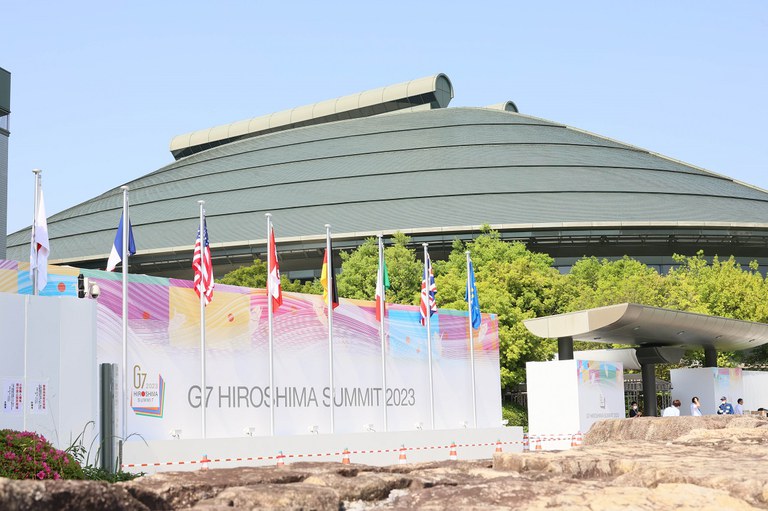Notícias
FOOD INSECURITY
Brazil signs joint declaration on food security at G7 summit

Other 14 participating nations signed a joint statement presenting proposed actions - Credit: G7
At the first joint meeting of the G7 expanded summit today (20) in the city of Hiroshima, Brazil - represented by President Luiz Inácio Lula da Silva - and the other 14 participating nations signed a joint statement presenting proposed actions to strengthen global food security.
Under the title “Hiroshima Action Statement for Resilient Global Food Security,” the document agreed upon by the representatives of Brazil, Japan, Australia, Canada, Comoros, Cook Islands, France, Germany, India, Indonesia, Italy, South Korea, UK, US, Vietnam and the European Union presents short, medium and long-term assessments and actions to combat food insecurity.
“(...) We reaffirmed that access to affordable, safe and nutritious food is a basic human need, and shared the importance of working closely together to respond to the worsening global food security crisis with the world facing highest risk of famine in a generation and to build more resilient, sustainable and inclusive agriculture and food systems, including through enhancing stability and predictability in international markets,” says the statement.
In the short term, summit participants consider that the Covid-19 pandemic; international energy, food and fertilizer prices; the impacts of climate change; and conflicts such as the Ukraine war all threaten global food security. According to United Nations assessments and other reports, this context led 828 million people to face hunger in 2021.
To respond to this crisis, the following are some recommended measures: supporting humanitarian assistance; supporting grain exports; facilitating open and transparent international trade; strengthening coordination among countries and international institutions that act as donors; and supporting assistance to food production chains.
In the medium term, the key issue is to prepare countries to rapidly prevent and remedy future food security crises. To this end, the signatories promise to cooperate to increase market transparency; expand data collection and distribution, especially concerning inventories; and to implement crisis response and preparedness strategies.
“Reconfirming that agricultural trade must be rules-based, open, fair, transparent, predictable, inclusive, non-discriminatory and consistent with WTO rules,” the statement reads.
Over a longer term, the intention is to achieve global food security in a resilient way, ensuring nutrition for all. The commitment that has been made is to continue working together until 2030 to also ensure healthy food for everyone on the planet.
ACCESS THE LINK to check the full document joint